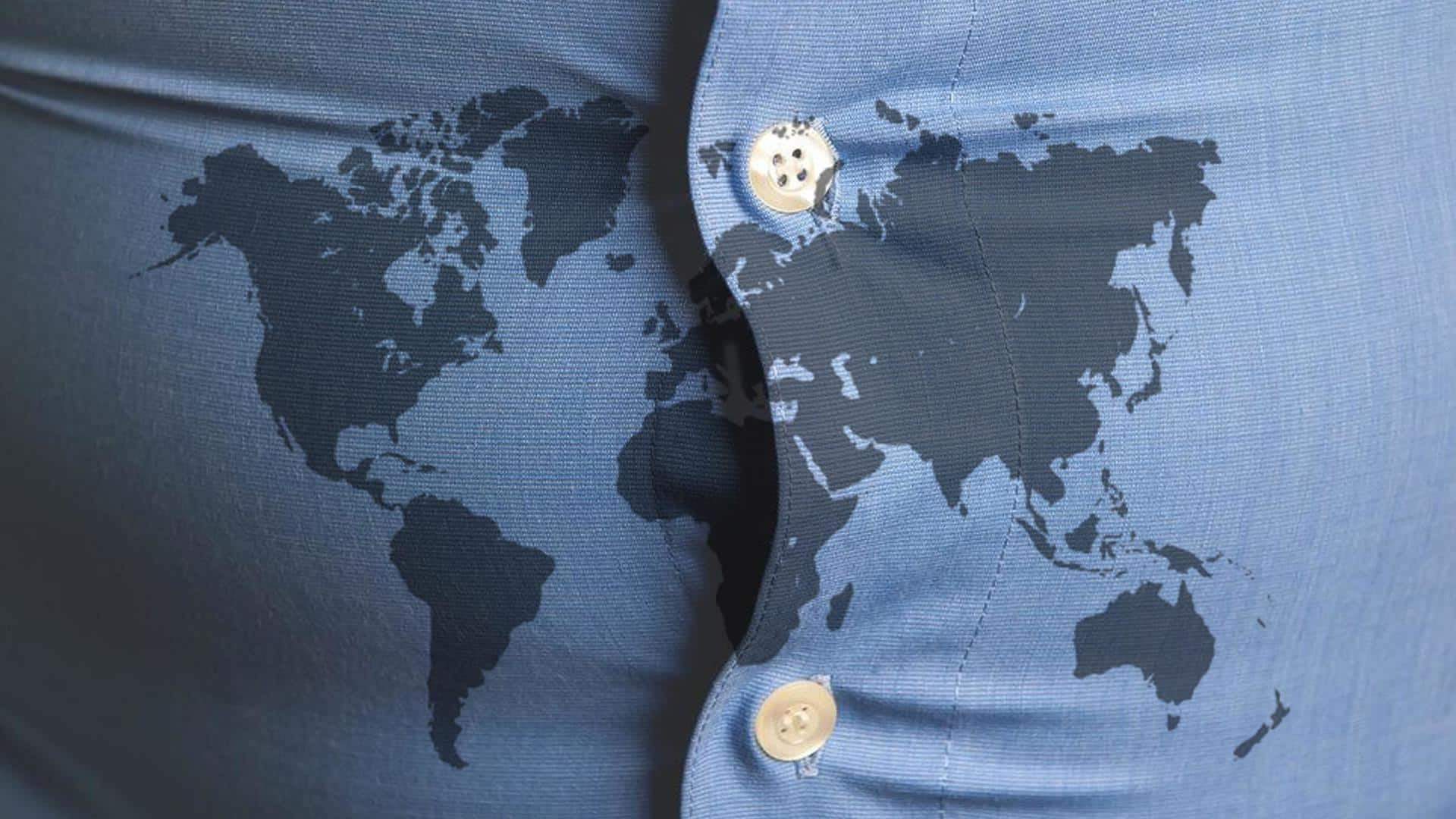
Half of the world will be obese by 2035: Report
What's the story
More than half of the world's population will be overweight or obese by 2035 if no action is taken, a report warned. Globally, approximately 2.6 billion people - 38% of the world population - are already overweight or obese. According to World Obesity Federation (WOF) report, that figure is expected to rise to more than 4 billion (51%) in 12 years.
Government intervention
Government intervention is required to control obesity
The report emphasizes rising obesity rates among children and teenagers, with rates expected to double from 2020 levels among both boys and girls. Without the widespread implementation of strategies such as taxes and limits on the promotion of unhealthy foods, the number of clinically obese people will rise from one in seven today to one in four by 2035.
Taxation required
The Federation wants policymakers to tax marketing of unhealthy foods
The data will be presented to United Nations policymakers and member states next week. The federation wants governments to use tax systems; restrictions on the marketing of foods that are high in fat, salt, or sugar; front-of-pack labels; and provision of healthy foods in schools to address rising obesity. The federation works closely on obesity with various global agencies, including the World Health Organization.
Quote
Governments need to do all they can
"It is particularly worrying to see obesity rates rising fastest among children and adolescents. Governments and policymakers around the world need to do all they can to avoid passing health, social and economic costs on to the younger generation." - Louise Baur, president, WOF
Obesity among girls
Obesity expected to go up even more sharply among girls
Obesity among children and adolescents is expected to rise faster than in adults. According to the report, by 2035, it is expected to be at least double the rate seen in 2020. Among boys under 18, it is expected to rise by 100% affecting 208 million. But among girls, the rise is expected to be even more dramatic (125%), affecting 175 million.
Cost of obesity
Cost of obesity to skyrocket to Rs. 354 trillion
The cost of obesity globally is predicted to skyrocket from about Rs. 160 trillion ($1.96 trillion) in 2019 to about Rs. 354 trillion ($4.32 trillion) by 2035. It is equivalent to 3% of the world's GDP, a sum comparable to the economic damage done by Covid-19. Prof. Louise Baur described the findings as a clear warning to countries to act now or face consequences.
Rankings
India ranks 99th in terms of obesity preparedness
The federation highlighted that Niger, Papua New Guinea, Somalia, Nigeria, and Central African Republic are the least prepared countries to deal with rising obesity. European nations are ranked as the 10 best prepared out of 183 countries studied, headed by Switzerland, Norway, Finland, Iceland, and Sweden. India was judged 99th on that measure.
Self-check
How to determine if you fall into the obese category?
A Body Mass Index (BMI) of 25 or higher is generally considered overweight, while a BMI of 30 or higher is considered obese. Obesity is associated with a higher risk of developing a range of health problems and can significantly increase the risk of developing chronic diseases, such as type-2 diabetes, stroke, sleep apnea, asthma, joint problems, cancer, and fertility issues, among others.